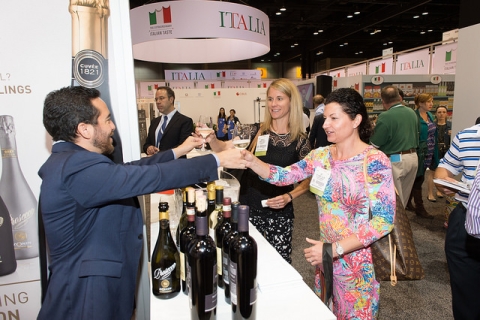Food Marketing Institute Shifts Events Strategy, Cancels FMI Connect Show

Rachel Wimberly
The Food Marketing Institute (FMI), an association for the food retail industry, has decided to shift its events strategy and cancel its annual trade show – FMI Connect.
The show was scheduled to run next June at Chicago’s McCormick Place and was held this past June along with United Fresh, Global Cold Chain Expo and the International Floriculture Expo.
Nearly 6,500 attendees and 491 exhibiting companies took part in FMI Connect in June 2016.
FMI President and CEO Leslie G. Sarasin offered the following statement to its members today announcing the association’s refocused events strategy:
“After much deliberation and guidance from the FMI Executive Committee of our Board of Directors, we came to the decision to no longer host FMI Connect 2017. As you can imagine, a decision of this magnitude was not reached easily.
“At FMI, we continue to believe that events designed to bring together the entire food retail industry and their partners for meaningful conversation, education, exploration and networking are desired and needed, but we have concluded these gatherings should occur in a framework that differs from the current FMI Connect design. We also recognize that in recent years this event has fallen short of achieving the precise formula necessary for meeting today’s industry needs, particularly as the industry continues to change and evolve so quickly.
“FMI aims at all times to be as agile and as bold as required to serve the needs of our members as well as the broader food industry. Therefore, we must design new occasions more appropriate to the faster paced rhythms of food retail, and in unique formats more attuned to the specific needs of our industry. With the elimination of having to fill football fields’ worth of space as ‘The Show’ configuration required, FMI will be liberated to explore new, focused and more flexible events.
“Of course, even when it is right and for the best, change is difficult. We appreciate the understanding of our members, partners, supporters, vendors, the city of Chicago and friends as we work through the many implications this tough decision has for us and more importantly, as we shape future directions for our members and their trading partners.
“The industry we serve is learning it must rethink and, when appropriate, redesign all aspects of its business, including everything from customer service to checkout, and from the number of items on the shelves to innovative ways of getting products to shoppers. Likewise, FMI must adapt and look with fresh eyes at the opportunities this new frontier holds, even when it requires letting go of old methods that hold places in our hearts.
“As always, we are grateful for your support. We look forward to hearing your ideas as together we plot and blaze new paths in our journey to feeding families and enriching lives.”
FMI’s U.S. members operate nearly 40,000 retail food stores and 25,000 pharmacies, representing a combined annual sales volume of almost $770 billion.


Add new comment